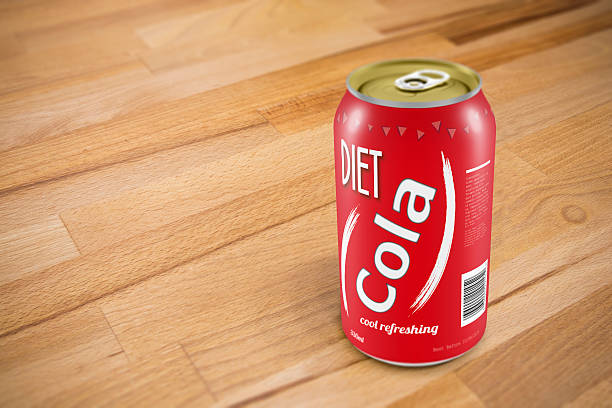A groundbreaking study has revealed a disturbing correlation between the daily intake of diet sodas or aspartame-laced beverages during pregnancy and the probability of autism in male offspring.
A Detailed Examination: Diet Sodas and the Autism Study

Source: iStock
According to a groundbreaking study conducted by the University of Texas Health Science Center at San Antonio (UT Health San Antonio), there is a concerning link between maternal consumption of diet sodas or high levels of aspartame during pregnancy or breastfeeding and the increased likelihood of giving birth to boys diagnosed with autism. The study did not find a significant correlation among female offspring.
It is important to note that these correlations do not establish causality. However, when taken in conjunction with previous research indicating increased prematurity and potential cardiometabolic health effects in infants and children exposed to diet beverages and/or aspartame daily during pregnancy, these findings raise important questions about potential neurological impacts.
Aspartame in Diet Sodas: A Hidden Danger
Researchers have associated aspartame, a widely recognized artificial sweetener, with neurological issues and a heightened risk of health problems in the offspring of animals that were fed aspartame during pregnancy. Furthermore, studies indicate that consuming diet sodas, other diet beverages, and/or aspartame on a daily basis during pregnancy can result in health complications for children. These findings underscore the potential risks linked to aspartame consumption during pregnancy.
A Deep Dive
For this study, researchers proposed that exposure to at least one can of diet soda per day, or an equivalent quantity of aspartame, escalates autism risk. They gathered dietary recalls from mothers of 235 offspring with autism spectrum disorder and 121 offspring with typical neurological development.
The findings revealed that males diagnosed with autism disorder had exposure odds more than tripled daily to these products during pregnancy or breastfeeding, compared to male controls. Males with non-regressive autism had the highest exposure odds among those who were exposed to these products daily during pregnancy or breastfeeding.
A Call for Caution

Source: iStock
In the face of such findings, it is imperative that women in Singapore and around the world exercise caution when considering the consumption of diet sodas during pregnancy and breastfeeding. This is a modifiable potential risk factor that, if addressed, could help protect vulnerable offspring in future generations.
The study serves as a stark reminder to all parents. In our fast-paced lives, we must remain vigilant about the choices we make for ourselves and our children. While further studies are necessary to validate these findings, the message is clear — when it comes to the health of our children, we cannot afford to be complacent.
Given these findings, it’s time for women in Singapore and across the globe to put down the can of diet soda during pregnancy and breastfeeding. This modifiable potential risk factor, if nipped in the bud, could help safeguard vulnerable offspring in future generations.
Remember, every can of soda you skip today might just be the secret ingredient for a healthier tomorrow for your child.
ALSO READ
Can I Drink Soda While Pregnant?
Drinking Too Much Of Soda Can Affect Your Fertility, Says New Study
Fruit juice is as bad as soda?